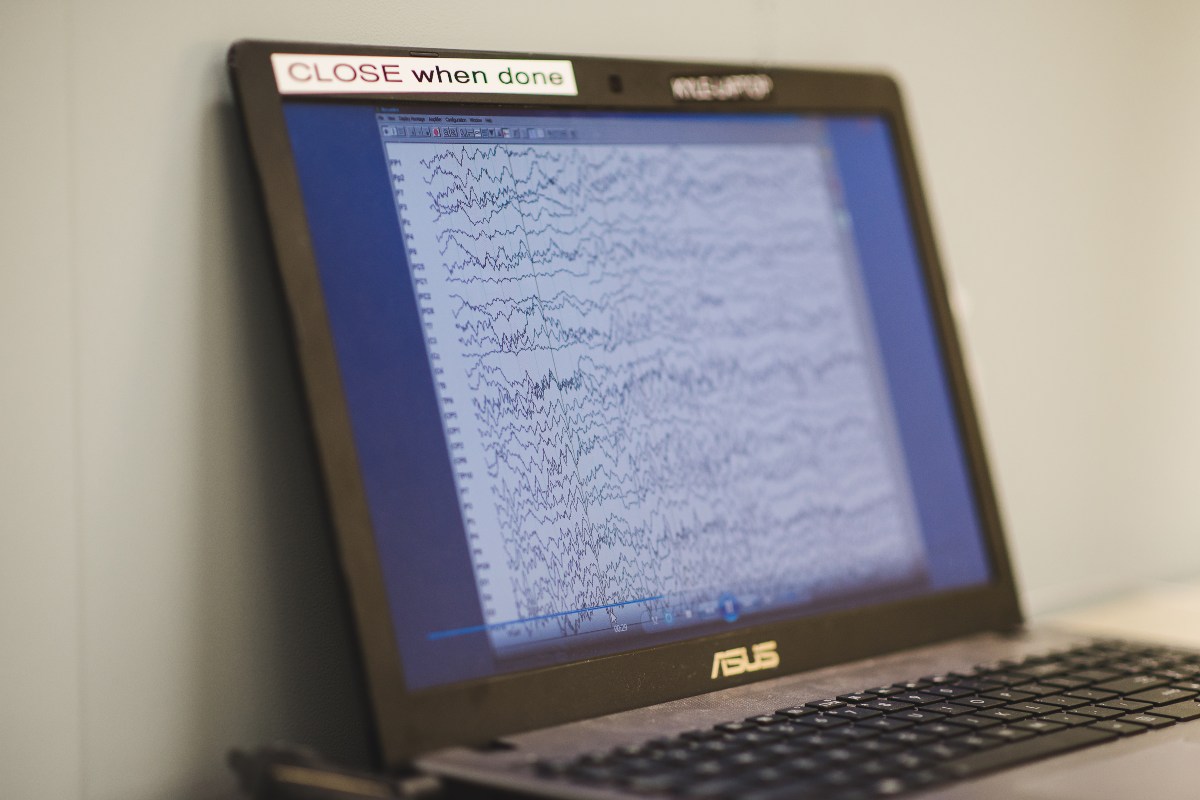
Each year, the work-integrated learning program introduces thousands of undergraduate students to the world of research by giving them the opportunity to participate in research projects being conducted by researchers in the Department of Psychology. Photo credit: Dawn Graves
Whether you are a first-year undergraduate student today or you studied introductory psychology at the University of Alberta decades ago, you likely got your first taste of the world of research in the Department of Psychology’s Research Participation (RP) program.
Each year, this work-integrated learning program introduces thousands of undergraduate students to the world of research by giving them the opportunity to participate in research projects being conducted by researchers in the Department of Psychology.
“The goal of this program is to give students a first-hand look at what it’s like to conduct novel research in the field of psychology,” explained Karlene Lynch, program coordinator. “We’re incredibly fortunate to be able to provide this type of opportunity to students in a first-year course. For most students, the RP program is their first exposure to research projects in which the outcomes are unknown.”
For students enrolled in introductory psychology courses, Basic Psychological Processes (PSYCO 104) and Individual and Social Behaviour (PSYCO 105), the RP program is the lab component of their course
“The RP program fosters experiential and work-integrated learning,” added Lynch. “Students may not realize that a single sentence in their textbook represents years of study by hundreds of individuals. By participating in research projects, students start to understand the process through which a hypothesis could evolve into an established theory.”
The program also provides students with a tangible illustration of concepts like ethics, research methodology, study design, and analysis, encouraging the development of critical thinking skills.
And for students like Brandon Hauer, the RP program can change the course of their career.
“Research Participation was my first experience with actual university-level research, and moreover, my first experience with human research,” said Hauer, now a neuroscience PhD candidate. “There were so many different people studying such vastly different things, I could hardly believe it. I went from interpreting word meanings in different contexts in one session, to playing Need for Speed with a racing wheel in the next.”
Being part of this process piqued Hauer’s curiosity, and led him to reach out to some of the faculty members in the Department of Psychology. They responded to his interest with a seemingly radical question—what do you want to study? Inspired, Hauer switched to the Honors Psychology Program, during which he began to develop his own research.
“By the end of my undergraduate degree I had more questions and ideas than ever, and I realized that no one was going to answer them if I didn't,” he said. “And now here I am, years later and nearing the end of my PhD in neuroscience, thanks in large part to the curiosity I gained from those first year research studies that I took part in.”
In his graduate program, Hauer is studying the formation of memories under the supervision of Clay Dickson, professor in the Department of Psychology and Silvia Pagliardini, associate professor in the Department of Physiology in the Faculty of Medicine & Dentistry.
When asked about his advice for students participating in the Research Participation program courses, Hauer explained the importance of being curious.
“If anything in research participation seems especially interesting or fascinating to you, or spurs questions about something else for you, talk to a professor about it,” he said. “Research is one of the most gratifying things you can experience in university, and it's probably much easier than you think to get involved in it—even in first year!”
Hauer, Dickson, and Pagliardini are part of the University of Alberta's cross-faculty Neuroscience and Mental Health Institute (NMHI), a consortium dedicated to the exploration of how the nervous system functions, the basis for disease, and the translation of discoveries into improved prevention and treatment options.
Learn more about experiential learning and work-integrated learning programs in the Faculty of Science.